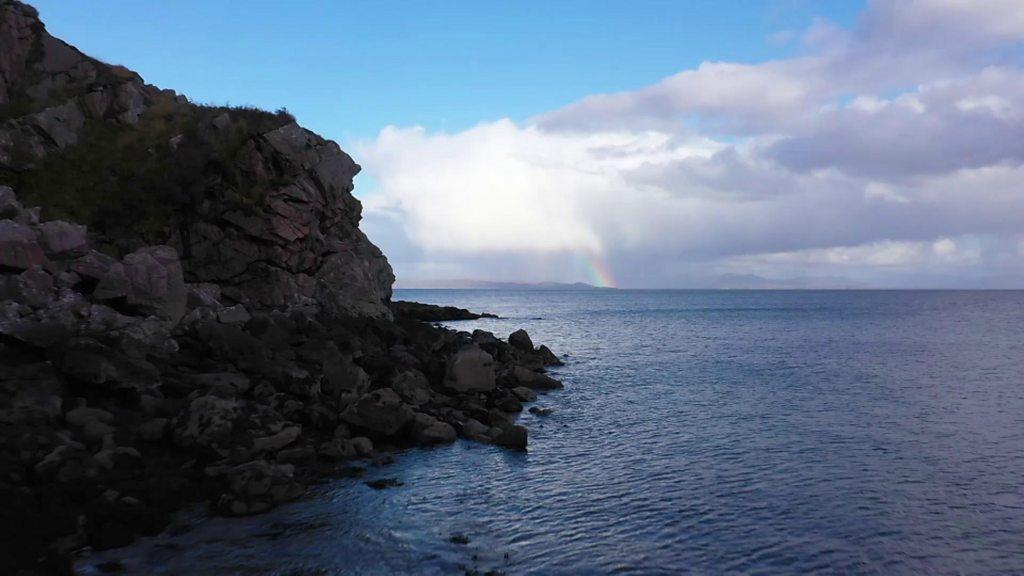Return to the island where eagles watch you brush your teeth
- Published
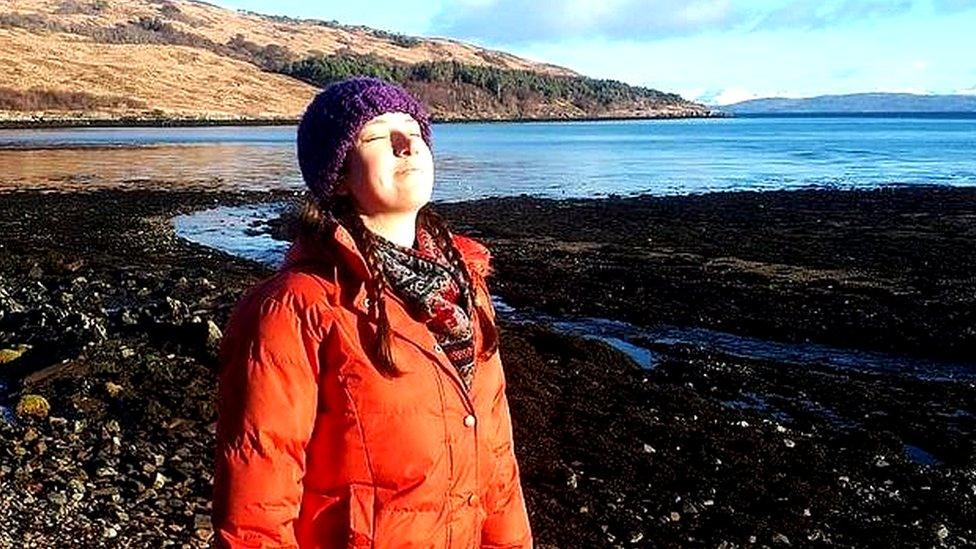
Buffy Cracknell and partner Alex are now settled on the isle of Rum
Alex Mumford walks outside to brush his teeth. He lives on a beautiful Scottish island, so why not?
Overhead, two sea eagles soar and swoop, squawking to make their presence known.
This is island life and Alex and his partner Buffy Cracknell love it.
Six months ago, the Bristol couple dropped everything to have a go at creating their own Good Life on the Isle of Rum, 30 miles off the Scottish mainland.
They answered a call from the island's community trust for new residents. Four families were chosen from 440 applications to live in a small hamlet of new eco-houses and bring something vital to the community.
In December, thanks to Covid they moved to the island without ever having visited it.
Six months on, how have the couple fared?
'We feel like we can give back now'
Alex and Buffy have settled in well. It took them a few months to understand the logistics of local life and what they could and couldn't do on an island.
"We both now work on the island and feel like we can give back to the community in some way," said Alex.
"That was a driving force in moving somewhere remote like Rum."
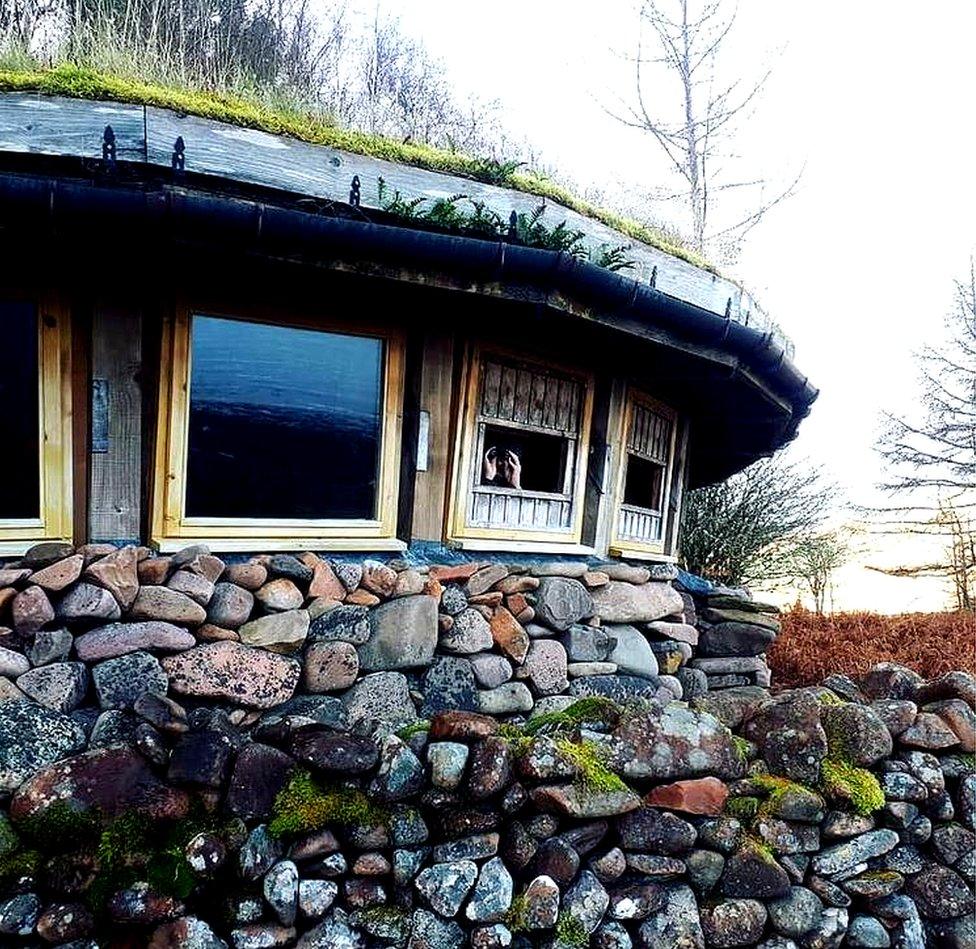
Buffy and Alex have been volunteering for conservation projects and this hide is just a 20-minute walk from their home
The pair are busier than ever and are also volunteering with Nature Scot, Scotland's nature agency.
Alex said: "We recently went out on a bird count, circumnavigating the island seeing sea eagles soaring above the boat, a wide range of sea birds, dolphins and a Minke Whale.
"That was something Bristol would find hard to match."
The couple describe Rum, one of the Small Isles in the Inner Hebrides, as "pretty close to an idyll" but say there are logistical challenges involved in living on an island.
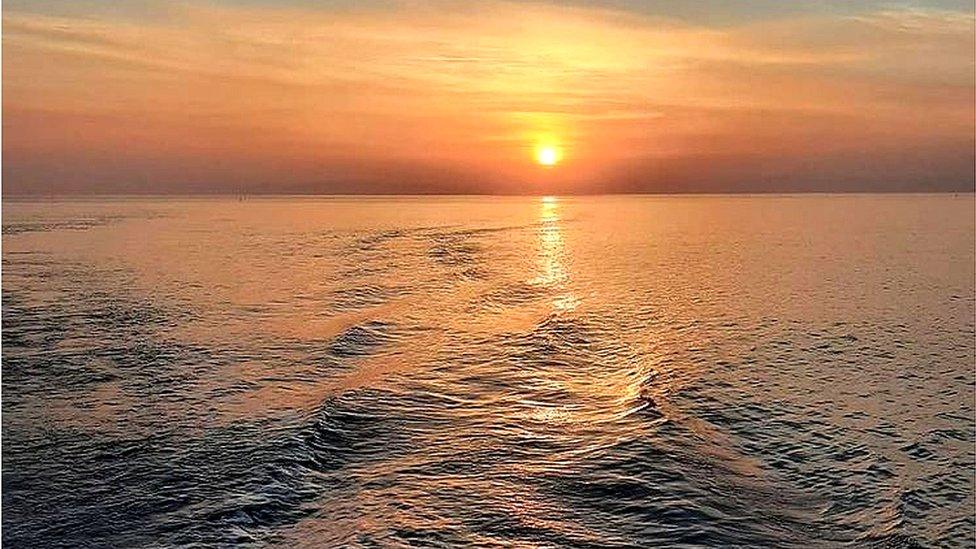
Waking early is not an issue with a stunning Rum sunrise like this
Cancelled ferries can set them back days as they found out earlier this year when they were stranded at Mallaig. They had to hitch a ride home with a local boat tour company.
Even a remote island has not escaped Covid measures and they are yet to experience full island life without any restrictions. They look forward to welcoming unlimited visitors in the near future.
Island living has taken a bit of getting used to but Alex and Buffy are now fully immersed.
They have even been recording the experience on an island blog and sharing beautiful photos of their adventures on their House By The Stream, external page.
The couple previously spoke to BBC Scotland's The Nine about moving to the island
Alex said: "Buffy works with the Isle of Rum Community Trust and I work within the island's tourism sector.
"When we aren't working, we are out exploring the island or spending time outdoors with friends. We are learning that life doesn't need to be full of 'things to do' if you are content with your surroundings and your company, so some days are very slow and we love those days, just popping down to the ferry to collect my newspapers."
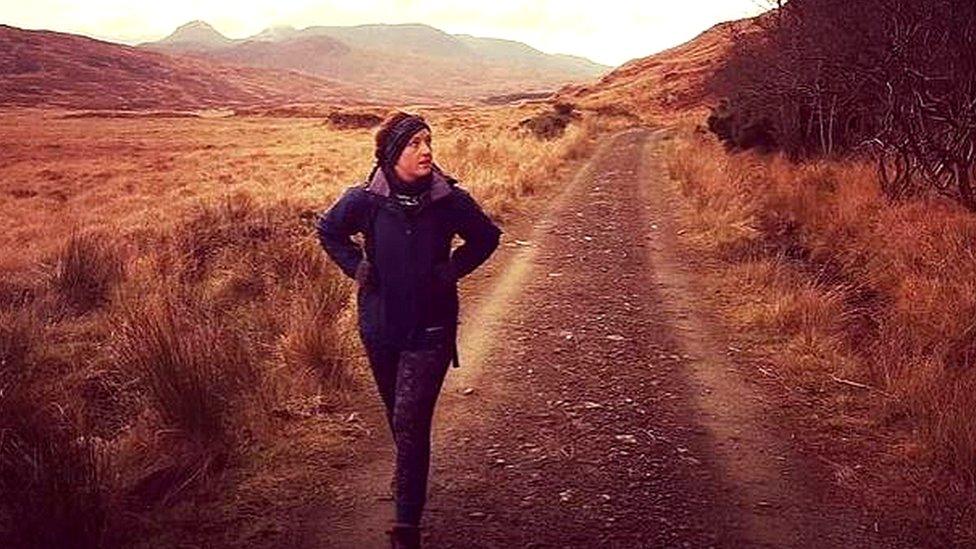
Buffy takes a morning walk to Kilmory to watch the deer feeding on seaweed
He added: "Buffy has climbed some of our highest peaks doing the Manx Shearwater Survey and the goat count for Nature Scot which involves long days trekking across terrain not built for humans.
"I have been out counting seabirds twice now. This is a huge island perk because on the mainland I couldn't imagine either of us getting the opportunity to do these kind of things. I have also dipped my feet into wild-water swimming on the loch and have taken the kayak out many times to get out on the ocean searching for the elusive marine mammals."
'You almost live with everyone else'
Before they left for Scotland, Alex and Buffy were told they could expect to become close to other families in their new home. But they said it was something they had not experienced before.
They lived with more people in an apartment building in Bristol than live on the entire island of Rum and knew little to nothing about those people. But on the island friendships and conversations "come with ease".
"It helps that we are all in the same boat in many respects and all the new families have helped each other in some way, shape or form," said Buffy.
"You can live a solitary life here if you choose or you could live with the buzz of a social life - somewhere in between is pretty good with us."
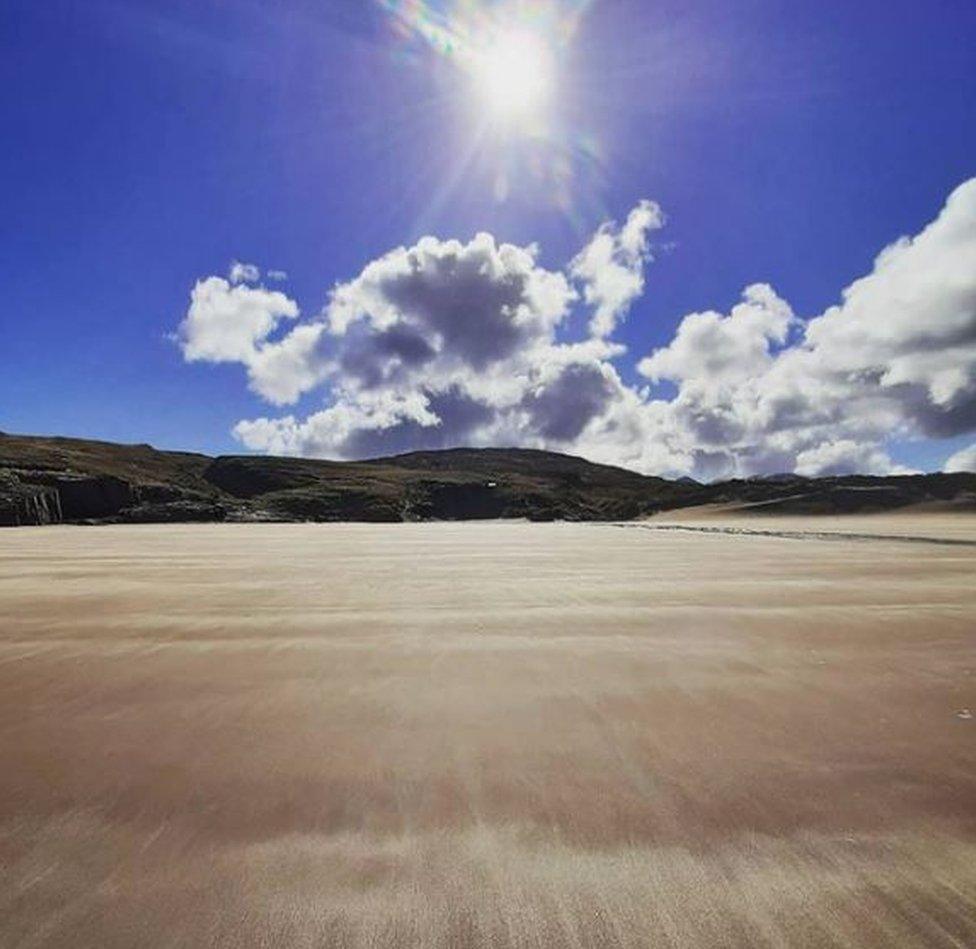
Rum has beaches to rival the Caribbean
The natural beauty of Rum has well surpassed their expectations.
Alex said: "One night last week I went outside and brushed my teeth, and two sea eagles glided by overhead, squawking as they rose over the hills behind us. It was just incredible.
"We have found nothing has let us down on the island. But one challenge has been getting things done with speed as 'Rum time' seems to be a real thing."
The north side of the island boasts Caribbean-style beaches and the couple have enjoyed watching the wildlife move through the seasons in their garden, on the bird feeders and on the loch. Spotting otters playing and dolphins swim by the boat still gives them a thrill.
Alex is looking forward to working with visitors to the island and showing them the unexplored landscape.
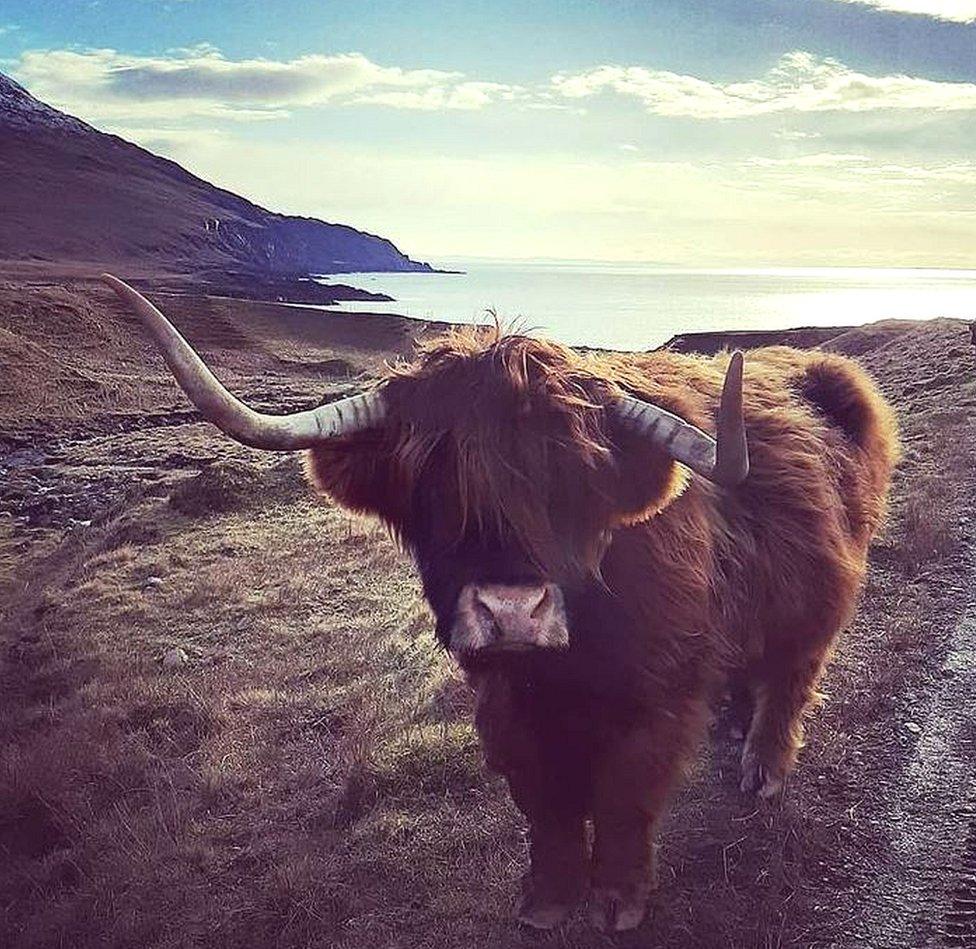
A warm welcome from a Highland coo
The first six months has not all been plain sailing. The Covid travel ban has stopped them seeing family but they have a visit home and a series of trips planned for when restrictions are fully lifted.
But they said: "A long drive and ferry trip is a small price to pay to live this lifestyle."
'We feel like islanders now'
The couple have learned to take life as it comes, learning as they go.
Alex said: "We can get petrol sent over in a jerry can, that's good to know. We don't always get the right food in our food orders from the mainland but luckily we have a fantastic shop which orders much of it direct."
He added: "There is a tendency on arrival to spread yourself too thin over many different projects but we have learned to focus on what we do best and we have slotted into our community now using our strengths to hopefully benefit as many local people as possible, and visitors alike."
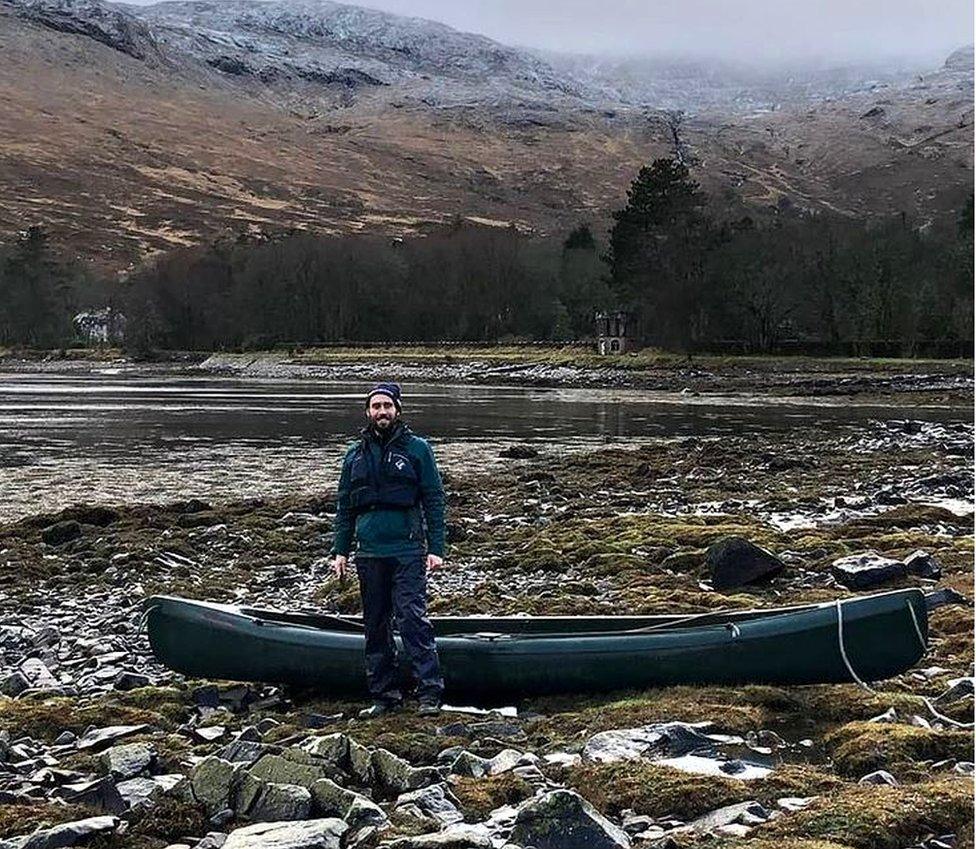
Alex loves taking his kayak out to see the sea birds and mammals
Six months on, Alex and Buffy feel like islanders, especially when they venture to the mainland.
Alex said: We are always comparing things and wondering how we ever lived in London or Bristol.
"We were seen as the 'weird ones' when we decided to make this move but when you break down the claustrophobia of city life, it's an easy choice.
"You have more freedom to be yourself here... and to do your teeth outdoors with eagles."
Related topics
- Published3 December 2020
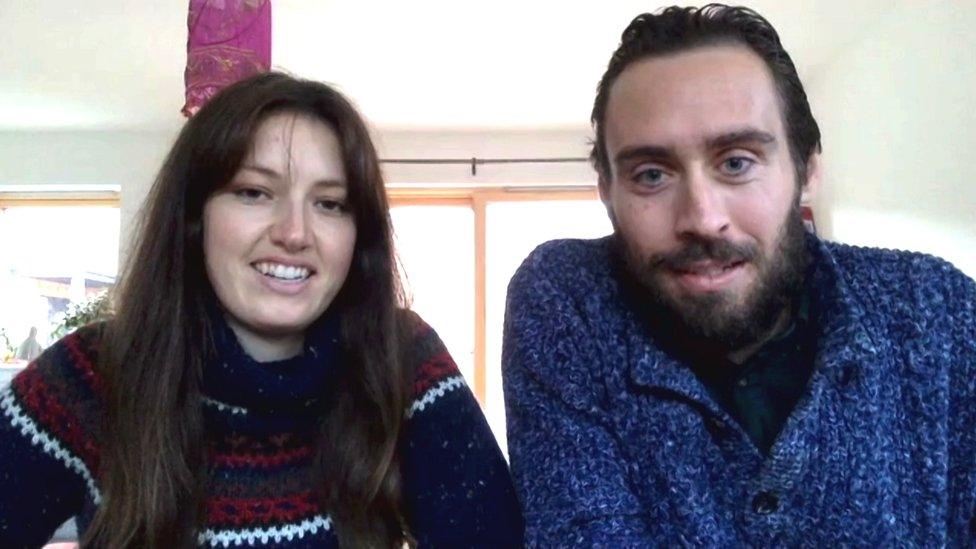
- Published3 December 2020
